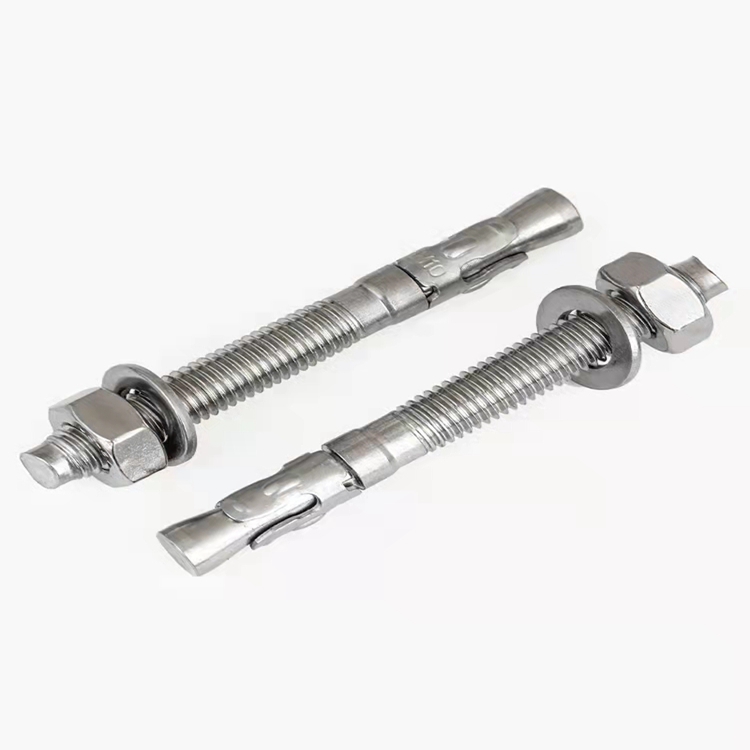Best Stud Bolt with 2 Nuts | High-Quality Fasteners for Reliable Applications
Aug . 30, 2024 01:25 Back to list
Best Stud Bolt with 2 Nuts | High-Quality Fasteners for Reliable Applications
The Importance of Quality Stud Bolts with Nuts in Engineering Applications
In various engineering applications, fastening components securely is crucial for ensuring the integrity and reliability of structures and machinery. Among the various fastening options available, stud bolts paired with nuts stand out as a robust solution for many industries, including construction, automotive, and manufacturing. When choosing the best stud bolt with two nuts, several factors come into play, including material, size, strength, and application requirements.
What Are Stud Bolts?
A stud bolt is a standard type of fastener that consists of a long rod or bolt with threads on both ends. This design allows it to be inserted through a component and secured with nuts on either side, which provides a firm grip and distributes the load evenly. Stud bolts are essential in applications where smooth external surfaces are preferable, such as flanged joints in piping systems.
Choosing the Right Material
The choice of material for stud bolts significantly impacts their performance. Common materials include steel, stainless steel, and titanium. Steel bolts are widely used due to their strength and cost-effectiveness. However, they may not be suitable for corrosive environments. In contrast, stainless steel offers excellent corrosion resistance, making it ideal for marine applications and industries where exposure to chemicals is common. Titanium, while more expensive, provides exceptional strength-to-weight ratios, making it suitable for aerospace applications where weight savings are critical.
The Role of Nuts
best stud bolt with 2 nuts

Using two nuts with a stud bolt has specific advantages. Firstly, it allows for greater control over the tightness of the assembly. By tightening one nut against the surface and the second nut against the first, you can create a more secure connection that is less likely to loosen over time. Additionally, this method can help prevent galling—a form of wear caused by friction—making it particularly useful in high-stress applications.
Strength and Load Considerations
When selecting a stud bolt with nuts, it is vital to consider the load requirements of the application. The tensile strength of the bolt and the material of the nuts are critical factors. For heavy-duty applications, high-strength bolts (such as Grade 8 or ASTM A193 B7) may be necessary to withstand substantial loads without failure. Engineers often rely on standards and guidelines, such as those provided by the American Society for Testing and Materials (ASTM) or the International Organization for Standardization (ISO), to ensure the chosen fasteners meet the necessary specifications.
Application Areas
Stud bolts with nuts are widely used in various industries. In construction, they can be found securing steel beams in place. In the automotive industry, they are integral to securing engine components. Meanwhile, in oil and gas, they are essential for creating leak-proof seals in pipelines and pressure vessels.
Conclusion
Selecting the best stud bolt with two nuts is essential for achieving reliable and durable fastening solutions in numerous applications. By considering factors such as material, strength, and specific use cases, engineers and manufacturers can ensure that their structures and machinery operate safely and efficiently. With the right combination of stud bolts and nuts, industries can maintain performance and integrity, paving the way for innovation and advancement in engineering fields.
Latest news
-
Reliable Axle Nuts Supplier | High-Quality Automotive Parts
NewsAug.19,2025
-
Premium Wire Bolts Suppliers | Durable & Reliable Fasteners
NewsAug.18,2025
-
Leading Metric Wood Screw Companies & Manufacturers
NewsAug.17,2025
-
Top Wire Bolts Suppliers - Quality & Durable Fasteners
NewsAug.15,2025
-
Trusted Wire Bolts Company | Quality Fasteners Supplier
NewsAug.14,2025
-
Reliable Wire Bolts Suppliers & Manufacturers for Global Needs
NewsAug.13,2025
